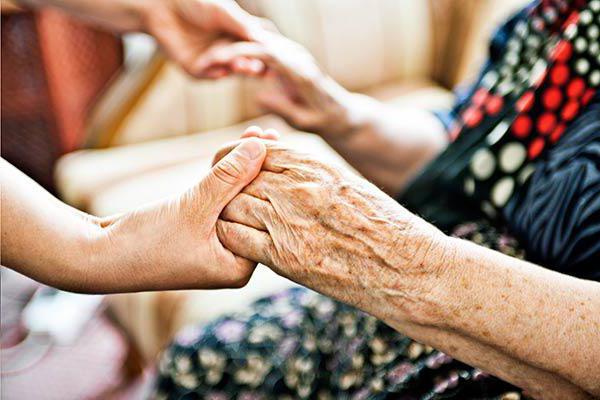In the Russian Federation, it is fixed at the constitutional level that our state is socially oriented. What does this mean? The answer is in the Federal Law on Social Security, which will be discussed in this article.
What is social security?
Every citizen of the Russian Federation should be provided with a set of quality services in a variety of fields. The state should consolidate the organizational, economic and legal foundations of social services. Both recipients and service providers must timely and efficiently exercise their responsibilities and rights.
Social service in the Law on Social Security refers to the activities of state authorities in providing various services to citizens. Social service is understood as a certain useful action in the field of public welfare.
Social services in our country are based on a number of important principles. It is worth highlighting equal access of citizens to services, voluntariness, targeting, proximity of suppliers to the places of residence of those in need, and much more.
State role
According to Chapter 2 of the Law "On Social Security of Citizens", both federal and regional authorities have a number of important powers in the social sphere. First you need to pay attention to the functions of federal bodies. Here it is worth highlighting:
- formation and establishment of state policy in the field of social services;
- approval of guidelines and a sample list of services;
- management of federal property required for social services;
- implementation of federal oversight of the quality of services.

Article 8 of the Federal Law "On Social Services" describes the powers of regional authorities. I must say that the functions of state bodies of the constituent entities of the Russian Federation are not much different from the functions of the federal system. It is worth highlighting all the same work with property (but already regional), the development of plans and monitoring their implementation.
Rights and obligations of service recipients
The recipient of services is the person to whom the state's work on social security is directed. The recipient has a number of important rights, among which it is worth highlighting:
- Respect for service providers
- free choice of supplier;
- the possibility of refusing to receive services;
- participation in the formation of individual programs;
- requirements for compliance with sanitary, hygienic and other standards, as well as much more.

The responsibilities of the recipient of services include timely informing suppliers of the refusal to receive work or a change in a number of circumstances. The recipient must comply with the terms of the contract, as well as provide government agencies with all the necessary documentation for receiving services.
Rights and obligations of service providers
What are the right representatives of government bodies referred to as suppliers? According to Chapter 11 of the Law on Social Security, suppliers have the right to refuse to provide a particular service, to include the constituent entities of the Russian Federation in special registers, as well as to implement a request to state authorities or local authorities.
Service providers have far more responsibilities than recipients. Here are some things to watch out for:
- the implementation of its activities in accordance with the legislation of the Russian Federation;
- high-quality and timely provision of social services to recipients;
- if necessary, the provision of urgent services;
- use of information about recipients of services - but only in certain cases regulated by law;
- ensuring the safety of the personal property of the recipient;
- fulfillment of other obligations enshrined in article 12 of the Federal Law "On Social Security in the Russian Federation".

Providers do not have the right to restrict the freedoms, rights, or interests of service recipients, or to use psychological or physical violence against serviced individuals.
Social Service Forms
According to the Law on Social Security, social services can come in several forms: at home, in a stationary or semi-stationary form.
The most common type of service is home maintenance. For example, workers from social welfare agencies come to an elderly or disabled person. They supply the physically or mentally handicapped person with medicines, help with the household, and fulfill individual requests of the serviced citizen.
The semi-stationary form involves the provision of services at certain times of the day. The services are the same. If we are talking about a stationary form, then it is worth remembering the persons released from prison. For security reasons, such citizens are subject to administrative supervision. Citizens are required to attend inpatient facilities and receive special services there. In addition to former prisoners, we are also talking about some unhealthy or incapacitated citizens.
Social service organization
Who organizes social service activities? These are special government agencies that provide services at home or in hospitals. All activities of such authorities are based on methodological recommendations. The needs of Russian entities are calculated, the development of a network of social services is taken into account. In accordance with established organizational rules, all spheres of social services, as well as their units, carry out their work.
Boards of trustees should be established in every government agency involved in social services. The formation procedure, terms of work, structure and competence of such councils are determined in strict accordance with the organization’s charter, as well as a number of laws on social security law.
Financing
Chapter 8 of the Law "On State Social Security" discusses the financial security of the system in question. The law indicates the sources of financing. Here it is worth highlighting:
- charitable donations and contributions;
- funds of recipients of paid services;
- income from entrepreneurial activities that may be implemented by the social welfare authority;
- funds from the Russian budget system.

According to the laws in the field of social security, the procedure for spending money received from the budget is established by the executive federal or authorized regional authority in the Russian Federation.